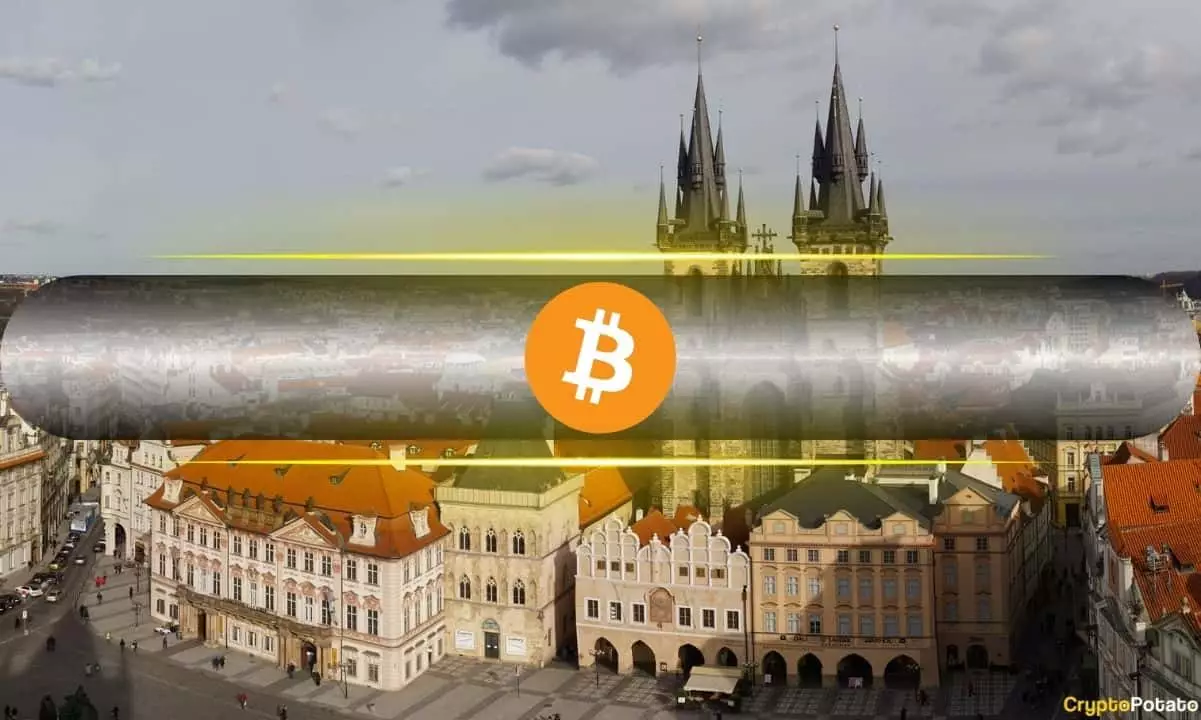In recent years, Bitcoin has emerged as a topic of serious debate within the corridors of power in numerous countries. Governments and central banks, most notably in Europe and the United States, are starting to acknowledge the cryptocurrency not merely as a speculative asset but as a potential alternative to traditional reserves. Among the nations weighing this shift is the Czech Republic, with the governor of the Czech National Bank (ČNB), Aleš Michl, recently indicating interest in utilizing Bitcoin for diversifying foreign exchange reserves. This shift reflects a broader trend wherein national financial authorities are contemplating Bitcoin’s role in enhancing economic stability.
Governor Michl’s remarks on acquiring “a few Bitcoin” for reserve diversification mark a noteworthy moment in the nation’s financial strategy. However, it’s crucial to note that he clarified this would not amount to a substantial investment, underscoring a cautious approach. The ČNB’s decision-making is shaped by a seven-member board, indicating that any foray into Bitcoin would require collective consent, demonstrating the careful consideration of such a move in the broader context of economic policy.
The Influence of U.S. Politics
The narrative around Bitcoin has undeniably transformed in the wake of the 2024 U.S. elections, particularly following Donald Trump’s tentative embrace of the cryptocurrency. Once a vocal skeptic, Trump now advocates for establishing a U.S. Bitcoin reserve as a means to enhance economic resilience against inflation and currency devaluation. High-profile supporters, such as Senator Cynthia Lummis, argue fervently for Bitcoin’s inclusion in national reserves, arguing that its limited supply could serve as a safeguard against monetary erosion. Despite facing skepticism from various Congressional critics, the notion of a national Bitcoin reserve is gaining momentum.
International Considerations: Switzerland and Beyond
As the U.S. reassesses its stance on Bitcoin, Switzerland has also begun to consider this innovative asset. The Swiss National Bank is exploring the potential of incorporating Bitcoin into its reserves, alongside gold. A forthcoming referendum could position Switzerland as a pioneer in officially recognizing Bitcoin as a reserve asset, reinforcing its legacy as a trailblazer in financial innovation. This initiative could fundamentally alter the landscape of reserve assets not just in Switzerland but globally, inviting other nations to reassess their financial strategies.
The interest in Bitcoin isn’t confined to Europe. Figures in Germany like former Finance Minister Christian Lindner have suggested that adopting Bitcoin could lessen the EU’s reliance on the US dollar if endorsed by major financial institutions like the European Central Bank. Likewise, Hong Kong is contemplating integrating Bitcoin into its financial reserves, as legislator Wu Jiezhuang highlighted the asset’s potential to enhance economic robustness. In contrast, Russia’s approach to cryptocurrencies is more transactional; legislation is being proposed to establish a strategic Bitcoin reserve as a countermeasure to Western sanctions, signaling a bold move in utilizing crypto-assets for geopolitical leverage.
As the global landscape shifts, countries are re-evaluating their approaches to reserve management. Bitcoin’s growing acceptance as a legitimate asset presents a new chapter in financial policy, with potential implications for international economic relations. Both the Czech Republic and other leading nations’ exploratory moves suggest that the conversation surrounding Bitcoin is just beginning, with the possibility of irreversible changes in how national reserves are structured in the future.

